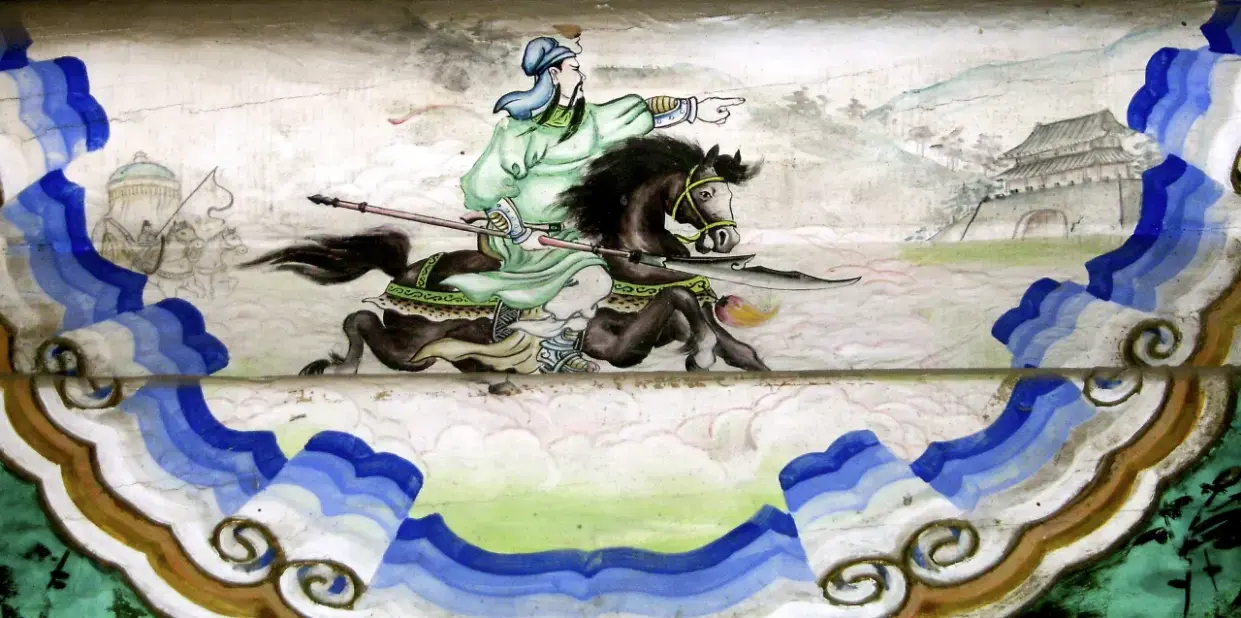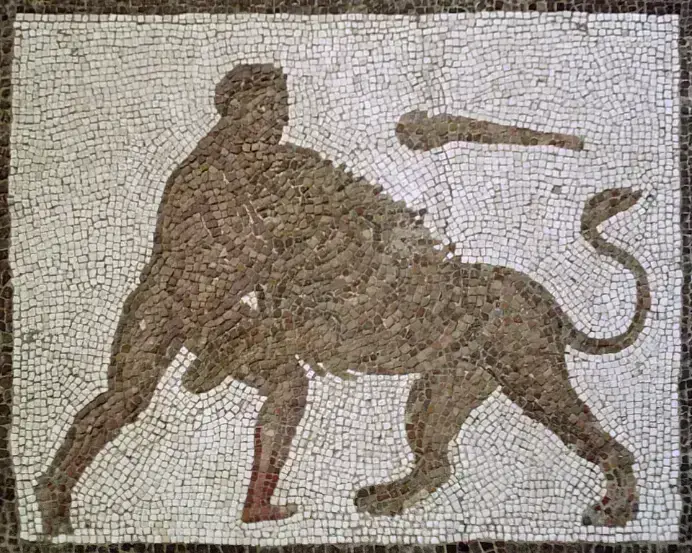Guan Yu(關羽)

Guan Yu ([kwán ỳ]; d. January or February 220), courtesy name Yunchang, was a Chinese military general who served under warlord Liu Bei during the late Eastern Han dynasty. Together with Zhang Fei, he formed a brotherly bond with Liu Bei and joined him on most of his early military campaigns.
Guan Yu was instrumental in the events that led to the fall of the Han dynasty and the rise of Liu Bei's state of Shu Han during the Three Kingdoms period. While renowned for his loyalty to Liu Bei, Guan Yu also demonstrated gratitude toward Cao Cao by killing Yan Liang, a general serving under Cao Cao's enemy Yuan Shao, at the Battle of Boma. After Liu Bei took control of Yi Province in 214, Guan Yu remained to govern and defend Jing Province for approximately seven years.
In 219, while Guan Yu was engaged in battle against Cao Cao's forces at Fancheng, Liu Bei's ally Sun Quan broke their alliance and dispatched his general Lü Meng to seize Liu Bei's territories in Jing Province. By the time Guan Yu learned of Jing Province's fall following his defeat at Fancheng, it was too late. He was captured in an ambush by Sun Quan's forces and executed at Linju, Xiangyang Commandery (present-day Nanzhang County, Xiangyang City, Hubei).
After his death, Guan Yu's life and achievements were glorified to such an extent that he was deified during the Sui dynasty. Through centuries of storytelling, culminating in the 14th-century historical novel Romance of the Three Kingdoms, his deeds and moral character have been greatly magnified, establishing Guan Yu as one of East Asia's most celebrated symbols of loyalty and righteousness. He remains a cultural hero in Chinese tradition and is still worshipped by many people of Chinese descent throughout China, Taiwan, and other countries.
In religious devotion, he is reverently addressed as "Emperor Guan" (Guān Dì) or "Lord Guan" (Guān Gōng). As a deity worshipped in Chinese folk religion, popular Confucianism, Taoism, and Chinese Buddhism, small shrines dedicated to him can be found in virtually all traditional Chinese shops and restaurants.


